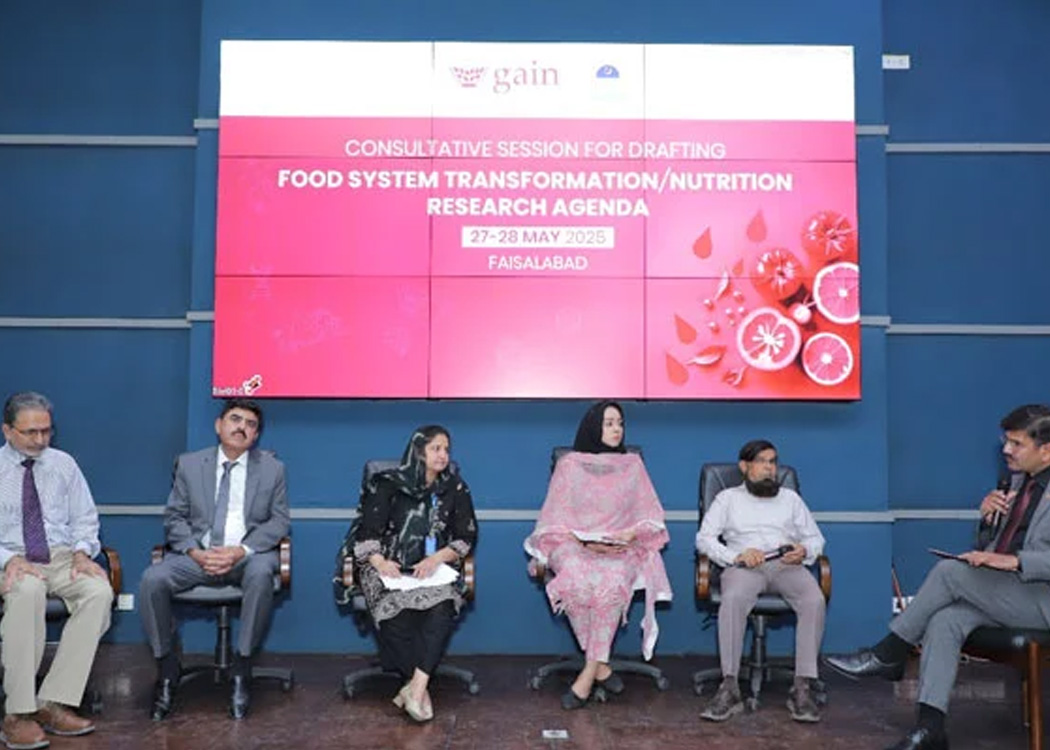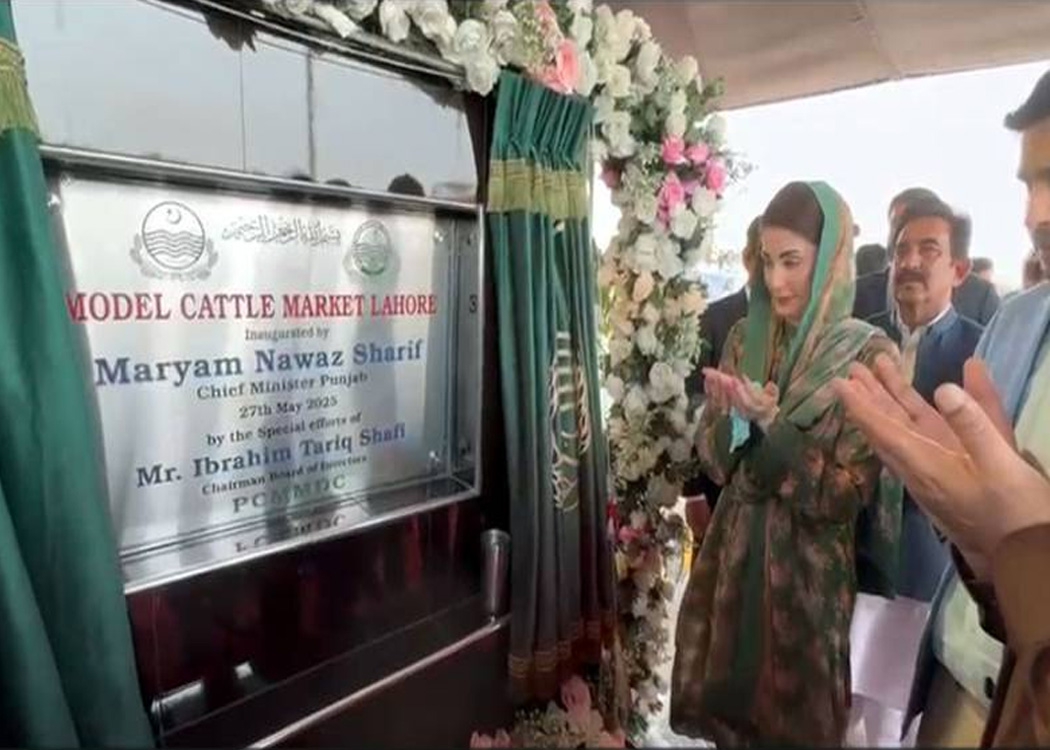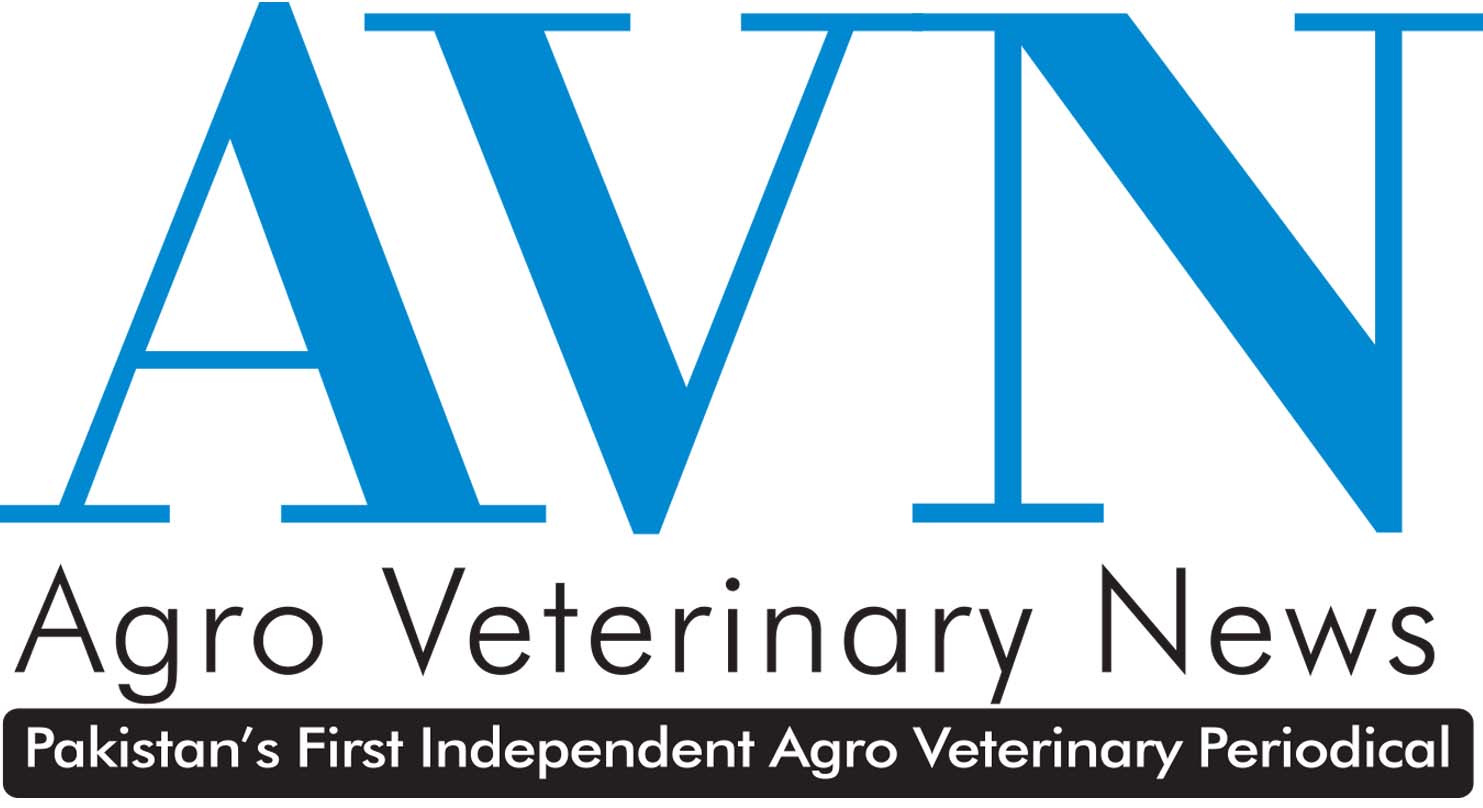ISLAMABAD: A landmark two-day national consultation titled “Priorities and Pathways: Developing a National Food Security and Nutrition Research Agenda for Pakistan” concluded at the University of Agriculture Faisalabad (UAF), signaling a bold new step in the country’s quest for sustainable and equitable food systems.
The event brought together leading minds from academia, government, and development organizations to craft a coherent, evidence-based research roadmap to address Pakistan’s growing food security and nutrition challenges. It was co-hosted by the Global Alliance for Improved Nutrition (GAIN), the National Institute of Food Science and Technology (NIFSAT), and the Pak-Korea Nutrition Centre (PKNC).
A collaborative national effort
Opening the session, Prof. Dr. Imran Pasha, Director General of NIFSAT, stressed the urgent need for research-driven solutions to tackle food insecurity and malnutrition. “Pakistan’s food systems are at a critical crossroads,” he noted, “and academic research must lead the way.”
Farrah Naz, Country Director of GAIN, emphasized that the initiative is not about siloed actions but building a unified, nationwide response to dietary inequity, food safety risks, and malnutrition. “The time to move from pilot projects to national policies is now,” she declared.
GAIN’s Faiz Rasool, Head of Policy & Advocacy, reinforced the urgency, stating, “We are not beginning from zero—we are building on decades of expertise. This research agenda is a social contract with every citizen who deserves safe, affordable, and nutritious food.”
Key focus areas for action
Participants engaged in structured dialogues across six high-impact thematic areas:
- Non-Communicable Diseases (NCDs)
- Diets and Food Environments
- Food Safety
- Post-Harvest Losses
- Climate Resilience in Agriculture
- Food Systems Governance
Each group proposed actionable policy recommendations, including:
- Introducing taxes on unhealthy food products
- Using AI and data tools for nutrition monitoring
- Strengthening and enforcing food safety laws
- Promoting climate-resilient farming practices
The bigger picture: Food as a public good
Reflecting on the evolution of food systems post-WWII, Prof. Dr. Zulfiqar Ali, Vice Chancellor of UAF and a globally recognized wheat breeder, warned that food quality has declined in the race to combat hunger. “The hidden costs of today’s food systems surpass $13 trillion worldwide,” he said. “We no longer have the luxury of delay—transforming food systems is now an urgent necessity.”
He emphasized that food security is not just an agricultural issue—it is a national development challenge that demands coordinated action across all government sectors and civil society.
Conclusion
This national research agenda signals Pakistan’s commitment to building a resilient, inclusive, and science-led food system. With collective action and informed policies, the nation moves closer to ensuring that every citizen has access to safe, nutritious, and affordable food—today and for generations to come.






